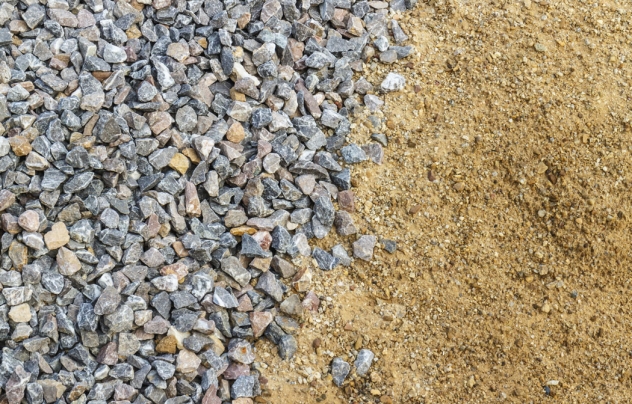- CALL 416.798.7050 OR 1.800.870.0926 FOR ANY SALES AND CUSTOMER SUPPORT INQUIRIES
THE FILL.

JAN
15
THE BASICS OF SAND & GRAVEL
Unless you are working on a construction project, you probably don’t spend much time thinking about sand and gravel. These natural resources are basic raw materials that are an important component used in construction.
What are Sand and Gravel Aggregates?
Natural gravel and sand are usually dug or dredged from a pit, river, lake, or seabed. They are also generally found in rivers and stream valleys where they have been deposited by water, ridges and hills. Sand and gravel deposits can also be found left behind by receding glacial action and subsequently altered by erosive forces. Aggregates can be a mix of materials such as sand, gravel, crushed stone, and slag. Unlike sand, crushed aggregate is produced by crushing quarry rock, boulders, cobbles, or large-size gravel.
Did you know that aggregates make up 60 to 75 percent of ready-mix concrete? In fact, poured concrete can be recycled by crushing the concrete into a viable source of aggregate for use in granular subbases and, if uncontaminated, in new concrete.
Processing of Aggregates
For best results in a concrete mix, aggregates must be clean, hard, strong particles and free of absorbed chemicals. Coatings of clay and other fine materials could cause the deterioration of concrete. After harvesting, the aggregate must be processed: aggregates are crushed, screened, and washed to obtain proper cleanliness and gradation. If necessary, a benefaction process such as jigging or heavy media separation can be used to upgrade the quality. Once processed, the aggregates are handled and stored to minimize segregation and degradation and prevent contamination.
Aggregates strongly influence concrete's mixed and hardened properties, mixture proportions, and economy. The selection of aggregates is an important process. Although some variation in aggregate properties is expected, characteristics that are considered include:
- Grading
- Durability
- Particle shape and surface texture
- Abrasion and skid resistance
- Unit weights and voids
- Absorption and surface moisture
Shape and Size Matter
Particle shape and size effect the properties of ready mixed concrete. Rough-textured, angular, and elongated particles require more water to produce workable concrete than smooth, rounded compact aggregate. Consequently, the cement content must also be increased to maintain the water-cement ratio. Generally, flat and elongated particles are avoided or are limited to about 15 percent by weight of the total aggregate. Unit-weight measures the volume that graded aggregate and the voids between them will occupy in concrete.
Uses of Gravel
Gravel is widely used in the construction industry for a variety of purposes. About half of gravel used in construction is used to make concrete for:
· Road Construction
· Mixing with Asphalt
· Construction Fill
· Concrete Blocks and Bricks
· Water Filtration
Types of Projects That Use Sand and Gravel
- Golf Courses - Sand is used to create the bunkers found along the golf course. Sand also can be used for top dressing, divot mixes, and root zone construction mixes. Sand is an important golf course material to make the ideal golfing surface.
- Equestrian Arenas - These are more than just sand-filled areas. Lots of work goes into making the ideal surface for an equestrian arena and quality equestrian sand is very important.
- Parks and Playgrounds – fine sand is typically found in playgrounds for children. Gravel can be used for pathways.
- Pool Sand - Pool filters use special pool sand to trap dirt and keep your pool clean.
- Volleyball Sand - Not just any sand will do, since it is important to get sand that won’t be too dusty, too coarse or compact too much.
- Landscaping - Gravel looks great lining flower beds or paths. Pea gravel is a great option for adding beauty to any landscaping project.
At Brock Aggregates, we carry and deliver a wide variety of all types of gravel and sand. Call us today at 416-798-7050 or visit our website: https://www.brockaggregates.com/







